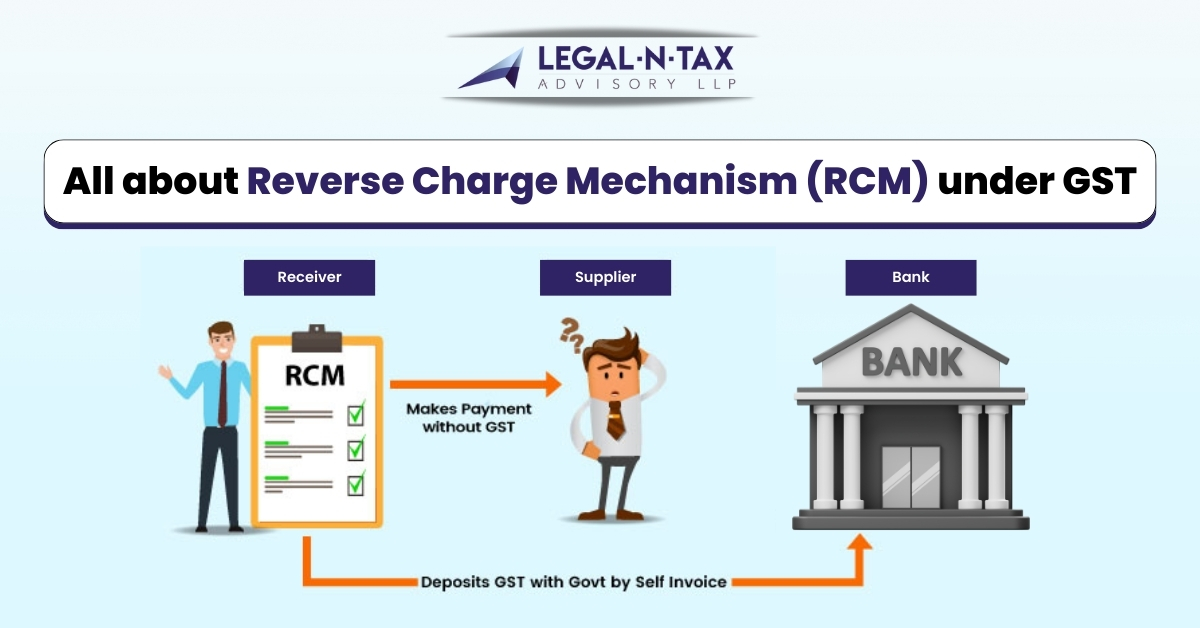All about Reverse Charge Mechanism (RCM) under GST
GST / Dec 10, 2024
Introduction to GST and RCM
The Goods and Services Tax (GST) has revolutionized India’s indirect tax system by unifying various taxes under one umbrella. While the GST framework is primarily built on the concept of the forward charge mechanism, the Reverse Charge Mechanism (RCM) is a critical exception that businesses need to understand.
RCM shifts the tax liability from the supplier to the recipient, which might sound confusing at first but has its logic and benefits.
Understanding the Reverse Charge Mechanism
How RCM Works
Under RCM, the buyer, instead of the seller, is responsible for paying GST directly to the government. This applies to specific goods and services as notified by the government.
Purpose of RCM
RCM ensures tax compliance in situations where the supplier might not be equipped to pay taxes or where tax evasion risks are high. It also brings unregistered dealers into the tax framework indirectly.
Applicability of RCM under GST
RCM for Specific Goods
Certain goods, such as cashew nuts, bidi wrappers, and lottery tickets, fall under the RCM ambit.
RCM for Specific Services
Services like legal services provided by advocates, services by a director to a company, and GTA (Goods Transport Agency) services are covered under RCM.
RCM for Unregistered Dealers
Transactions with Unregistered Dealers
If a registered dealer purchases goods or services from an unregistered dealer, the tax liability shifts to the registered buyer.
Impact on Registered Buyers
Registered buyers need to pay GST on such transactions, file returns, and claim Input Tax Credit (ITC) where applicable.
Notification and Updates on RCM
Key Notifications
The government periodically issues notifications to update the list of goods and services under RCM.
Recent Changes
The scope of RCM has expanded over the years, with increased emphasis on services from unregistered suppliers.
Tax Compliance Under RCM
Responsibilities of the Recipient
Recipients are responsible for calculating and depositing GST under RCM, filing returns, and maintaining records.
Tax Payment Process
GST under RCM must be paid via cash and not through ITC.
Input Tax Credit and RCM
Can Input Tax Credit be Claimed?
Yes, ITC can be claimed for GST paid under RCM, provided the goods or services are used for business purposes.
Conditions for Availing ITC
The recipient must ensure proper documentation and compliance with GST return filing requirements.
Challenges Faced in RCM Compliance
Common Issues for Businesses
Businesses often struggle with identifying transactions subject to RCM and maintaining accurate records.
Penalties for Non-Compliance
Non-compliance can lead to penalties and interest, adding financial burdens on businesses.
Benefits of RCM for the Economy
Addressing Tax Evasion
RCM reduces tax evasion by making the recipient accountable for tax payments.
Promoting Compliance
It ensures a higher level of compliance within the GST ecosystem.
RCM Scenarios: Case Studies
RCM in Import of Goods
When goods are imported, the importer must pay IGST under RCM.
RCM for Services by Advocates
Legal services provided by advocates are a common example of RCM application.
Exemptions under RCM
Goods and Services Exempted
Basic necessities and small-scale suppliers are exempted from RCM.
Understanding the Threshold
Transactions below the specified threshold value are not subject to RCM.
RCM vs Forward Charge Mechanism
Key Differences
While the forward charge is supplier-driven, RCM shifts responsibility to the recipient.
When to Use Which Mechanism
The choice depends on the nature of goods or services and supplier registration status.
Compliance Tips for Businesses
Best Practices for RCM
- Regularly review notifications.
- Maintain detailed records of RCM transactions.
Tools to Simplify RCM Filing
Use automated GST software for error-free compliance.
Future of RCM under GST
Predictions and Trends
With evolving business needs, RCM is likely to expand its scope further.
Possible Changes
Policymakers might simplify RCM processes to reduce the compliance burden.
Conclusion and Key Takeaways
RCM under GST is a crucial mechanism to ensure tax compliance and accountability. While it might seem complex initially, understanding its nuances can help businesses navigate GST effectively. By staying updated and adopting best practices, companies can ensure seamless compliance and avoid penalties.
FAQs on RCM under GST
-
What is the main purpose of RCM?
RCM ensures tax compliance in situations prone to tax evasion or involving unregistered suppliers. -
Can I claim ITC on GST paid under RCM?
Yes, provided the goods or services are for business purposes and all compliance requirements are met. -
Are all goods and services subject to RCM?
No, only specific goods and services notified by the government are under RCM. -
What happens if I fail to comply with RCM?
Non-compliance can result in penalties and interest. -
How can businesses simplify RCM compliance?
Using automated GST software and staying updated with notifications can help streamline RCM processes.
Share this with others:


